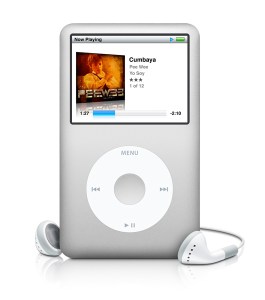
The Ninth Circuit Court of Appeals has ruled in favor of Apple in a class action lawsuit that claimed using Apple’s iconic iPod portable media players could lead to hearing damage and loss because they were capable of outputting audio as loud as 115db with the factory-supplied earbuds. The plaintiffs claimed that the capability to output that level of sound constituted a serious risk to iPod users, particularly the younger set, if they cranked their iPod to overcome environmental sound or just to be in an isolated universe with their tunes. However, a lower court ruled that merely having the potential to output damaging levels of sound did not put Apple on the hook, and the appeals court agreed with the lower court ruling. The appeals court further ruled that since the plaintiff had not suffered any injury themselves and could easily avoid any such industry, they had no standing to bring a suit against Apple.
Apple does include a warning with its iPod music player against prolonged use at high volume levels, and the devices can be configured to cap their output at a level well below the device’s maximum; thus, the means for avoiding hearing damage is both “obvious” and “avoidable” in the eyes of the court.
The ability to crank an iPod all the way to the limits of its hardware is potentially very useful for some users, particularly folks who use the devices with non-Apple headphone with different impedance values, or who are connecting the devices to other audio equipment. Nonetheless, experts agree that the danger of permanent hearing loss from prolonged use of high-volume personal music players and other in-ear devices is a serious issue, particularly for the so-called “iPod generation” that is being raised with in-ear media.


